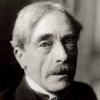A book is never finished, it is abandoned.
Gene Fowler (1890-1960) American journalist, author, and dramatist. [b. Eugene Devlan]
Quoted in H. Allen Smith, The Life and Legend of Gene Fowler, ch. 27 (1977)
(Source)
Quotations about:
completion
Note not all quotations have been tagged, so Search may find additional quotes on this topic.
Where music thundered let the mind be still,
Where the will triumphed let there be no will,
What light revealed, now let the dark fulfill.May Sarton (1912-1995) Belgian-American poet, novelist, memoirist [pen name of Eleanore Marie Sarton]
“Now Voyager”
(Source)
First published in The Lion and the Rose, Part 3 (1948).
I always make the first Verse well, but I’m perplex’d about the rest.
[Je fais toujours bien le premier vers: mais j’ai peine à faire les autres.]
Molière (1622-1673) French playwright, actor [stage name for Jean-Baptiste Poquelin]
The Romantick Ladies [Les Précieuses Ridicules], Act 1, sc. 11 (1659)
(Source)
Alt. trans.: "I always make the first verse well, but I have trouble making the others."
It is not yours to finish the task, but neither are you free to set it aside.
Tarfon (fl. 1st-2nd C AD) Jewish rabbi, sage
Mishnah, Pirkei Avot 2:15-16
Alt. trans.:
- It is not incumbent upon you to finish the task, but neither are you free to absolve yourself from it.
- It is not up to you to finish the task, but you are not free to avoid it.
- We need not finish the task but neither can we desist from it.
- Although I am not free to avoid doing the work, it is not always necessary that I finish the task.
- You are not obligated to complete the work, but neither are you free to abandon it.
An occasional glance at the obituary column of The Times has suggested to me that the sixties are very unhealthy; I have long thought that it would exasperate me to die before I had written this book, and so it seemed to me that I had better set about it at once. When I have finished it I can face the future with serenity, for I shall have rounded off my life’s work.
In the eyes of those lovers of perfection, a work is never finished — a word that for them has no sense — but abandoned; and this abandonment, whether to the flames or to the public (and which is the result of weariness or an obligation to deliver) is a kind of an accident to them, like the breaking off of a reflection, which fatigue, irritation, or something similar has made worthless.
[Aux yeux de ces amateurs d’inquiétude et de perfection, un ouvrage n’est jamais achevé, – mot qui pour eux n’a aucun sens, – mais abandonné ; et cet abandon, qui le livre aux flammes ou au public (et qu’il soit l’effet de la lassitude ou de l’obligation de livrer) est une sorte d’accident, comparable à la rupture d’une réflexion, que la fatigue, le fâcheux ou quelque sensation viennent rendre nulle.]
Paul Valéry (1871-1945) French poet, critic, author, polymath
“Au sujet du ‘Cimetière marin,'” La Nouvelle Revue Française (Mar 1933)
(Source)
Often rendered as: "A poem is never finished, only abandoned."
Alt. trans.: "In the eyes of those who anxiously seek perfection, a work is never truly completed -- a word that for them has no sense -- but abandoned; and this abandonment, of the book to the fire or to the public, whether due to weariness or to a need to deliver it for publication, is a sort of accident, comparable to the letting-go of an idea that has become so tiring or annoying that one has lost all interest in it." [tr. Maggio]
In the same vein, in "Recollections," Valery wrote: "A work is never completed except by some accident such as weariness, satisfaction, the need to deliver, or death: for, in relation to who or what is making it, it can only be one stage in a series of inner transformations."
Also attributed to W. H. Auden, Oscar Wilde, and Jean Cocteau, For more discussion of the origin of this phrase, see here.








